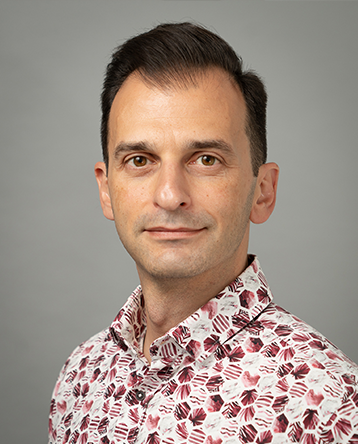Albert Presto
Research Professor, Mechanical Engineering
Director, Center for Atmospheric Particle Studies
Courtesy Appointment, Civil and Environmental Engineering
Research Professor, Mechanical Engineering
Director, Center for Atmospheric Particle Studies
Courtesy Appointment, Civil and Environmental Engineering

Albert Presto is a research professor in the Department of Mechanical Engineering at Carnegie Mellon University, and the director of the Center for Atmospheric Particle Studies (CAPS). Presto’s research focuses on pollutant emissions from energy extraction and consumption and the subsequent atmospheric transformations that these emissions undergo. Energy production and consumption is a major source of pollutants and greenhouse gases in the atmosphere. Gas and oil wells emit methane, a powerful greenhouse gas. Cars and trucks operating on gasoline and diesel fuels emit carbon monoxide, nitrogen oxides, and particulate matter. Particulate matter from mobile sources is largely the result of incomplete or inefficient combustion in the form of organic aerosol and carbon soot. In addition to the direct emissions of pollutants, dilute exhaust undergoes oxidation in the atmosphere. This oxidation chemistry can lead to the production of secondary pollutants, such as ozone and secondary particulate matter.
Presto investigates the contributions of primary and secondary pollution with ambient measurements, laboratory experiments, source testing of pollution sources, and atmospheric models. This multi-pronged and multi-disciplinary approach allows for a holistic view of pollutant emissions and transformations in the atmosphere.
In addition to having environmental impacts, these pollutants, particularly ozone and particulate matter, adversely impact human health. Presto collaborates with medical professionals to develop detailed studies of pollutant exposure on a neighborhood-by-neighborhood basis, and to better understand the relationships between pollutant emissions and adverse health effects such as childhood asthma.
2005 Ph.D., Chemical Engineering, Carnegie Mellon University
2001 BS, Chemical Engineering, Cornell University
Africa Clean Air Network
MechE’s Albert Presto has joined the Africa Clean Air Network’s Advisory Council to provide strategic guidance for the network.
CMU Engineering
The inaugural cohort of the the Engineering Leadership Fellows program is ready to begin year-long leadership development journey.
CMU Engineering
Published in Science Advances, breakthrough polymer coating extends the half-life of an MXene-based air quality sensor by 200% and enables regeneration when performance begins to degrade.
Mechanical Engineering
This year’s seed awards will help grow research in clean hydrogen production, AI hardware efficiency, and decarbonizing transportation.
Wilton E. Scott Institute for Energy Innovation
This year’s seed awards will help grow research in clean hydrogen production, AI hardware efficiency, and decarbonizing transportation.
Engineering and Public Policy
This year’s seed awards will help grow research in clean hydrogen production, AI hardware efficiency, and decarbonizing transportation.
Mechanical Engineering
Albert Presto has joined the Health Effect Institute's Energy Review Committee with the mission to protect public health as the oil and natural gas industry grows.
Carnegie Mellon University Africa
Richard Djarbeng (MS ECE '24) participated in air quality research in Pittsburgh as part of CMU-Africa’s student exchange program last semester.
The Guardian
MechE’s Albert Presto was quoted by the Guardian on how people of color are historically more likely to be exposed to harmful air pollution. “People of color are more likely to be living near an industrial area or highway, and therefore have higher exposure.”
CMU Engineering
Using existing filter tapes collected by U.S. embassies in Africa, mechanical engineering researchers have found a way to measure black carbon concentrations in fine particulate matter with only a reference card and their cell phones.
CMU Engineering
Albert Presto has been named the director of the Center for Atmospheric Particle Studies (CAPS) at Carnegie Mellon University.
NBC News
MechE’s Albert Presto collaborated on new research regarding chemicals released during the Ohio train derailment, finding high levels of acrolein.